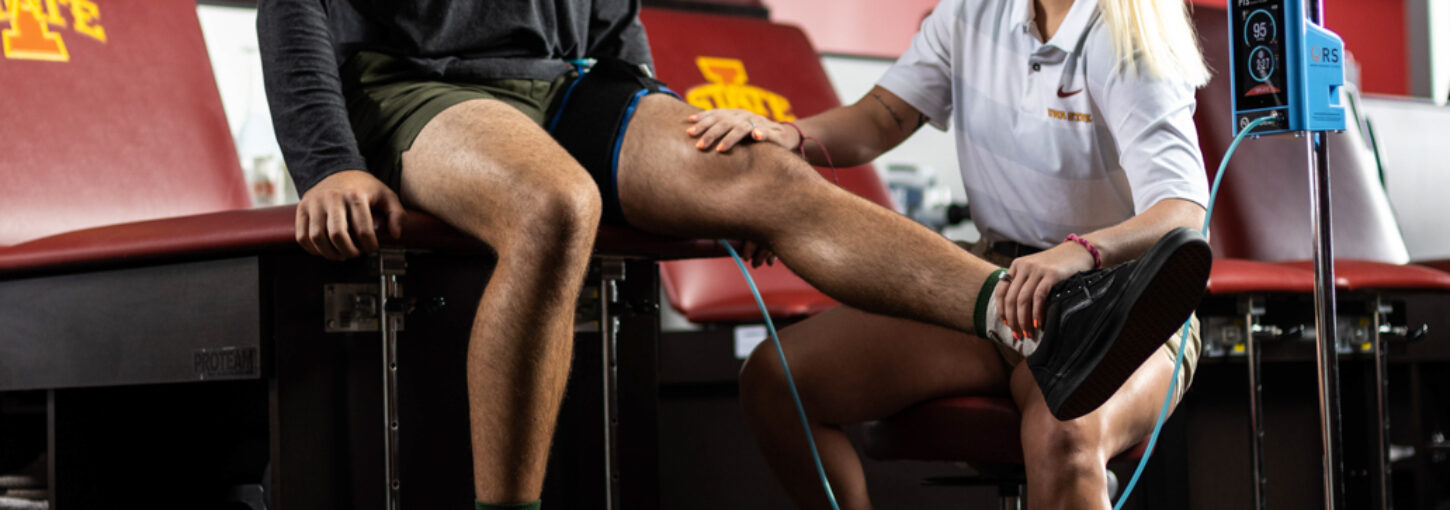Athletic training is the art and science of the prevention, recognition, care, and rehabilitation of athletic injuries. It involves the organization and administration of athletic training education programs, as well as the education and counseling of athletes and physically active individuals. Iowa State University’s athletic training program provides high-quality education striving to instill in the athletic training students the intellectual curiosity, evidence-based knowledge and clinical skills essential for their individual development. The athletic training program enrolls academically qualified students who represent diverse socio-economic levels, ethnic heritage and who provide a gender balance. The program faculty and clinical preceptors strive to prepare athletic training students to be productive and responsible citizens of the world and to foster affective, caring individuals to promote the profession of athletic training.

